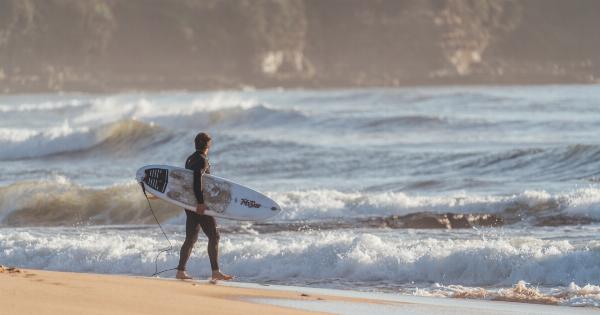Beach vacations are great for relaxation, getting a suntan and of course, many people head to the beach for some fun in the sand and water.
While sex on the beach may sound like a romantic and exciting idea, it is essential to take precautions to protect your health and avoid unwanted pregnancy and sexually transmitted infections (STIs). In this article, we will discuss some of the health risks associated with engaging in sex games in the sand and sea, especially for women.
Why Sex Games in the Sand and Sea can be Risky for Women?
Sex on the beach may sound like a fun and thrilling experience, but it can lead to a range of health problems. Here are some of the reasons why women are at higher risk when it comes to sex games in the sand and sea:.
1. Increased Risk of Infection
The sand and seawater have an abundance of micro-organisms, including bacteria, viruses, and parasites. Having sex in these environments can expose you to these harmful microorganisms, leading to infections.
Sex on the beach can cause trauma to the vaginal wall, making it more susceptible to infections. Many STIs such as Chlamydia, Gonorrhea, and Syphilis are more likely to be transmitted onto partners through skin-to-skin contact.
2. Sand Causes Friction
Sand has an abrasive effect on the skin, and it can cause friction between the sexual organs.
This can be especially uncomfortable for women, leading to cuts, scratches, and irritation, making them more vulnerable to infections and making it painful to move or even walk.
3. The Effects of Saltwater
Saltwater can be drying and irritating to sensitive genital tissues. This irritation, combined with any skin trauma caused by sand, can make it easier for infections to take hold.
4. Pregnancy Risks
Having unprotected sex in the sea, particularly during menstruation, increases the risk of unwanted pregnancy.
5. Lack of Privacy
Sex on the beach is illegal in many countries and states, and you can be caught and charged for public indecency.
Ways to stay Safe during Sex Games in the Sand and Sea
While the risks of having sex in the sand and sea are high for women, it is possible to minimize the risks and protect yourself from infections and unwanted pregnancies. Here are some ways to stay safe:.
1. Use Condoms
Condoms offer an effective way to protect yourself against STIs and unwanted pregnancies. Make sure you bring plenty of them, as sand, salt, and water can weaken them or can make them ineffective.
2. Avoid Sex during Menstruation
Having sex during menstruation increases the risk of infections and unwanted pregnancies. It is best to avoid sex on the beach during this time of the month.
3. Choose the Right Spot
Choose a spot that is less crowded and has no sharp rocks, plants, or debris that can injure you. While you need privacy, it is best not to go too far out to sea, as the currents can change quickly.
4. Hygiene Measures
Keep a bottle of hand sanitizer nearby to clean hands before and after sex. Use the restroom before and after sex and wipe with wet wipes or toilet paper. This helps to prevent infections.
5.Effective Birth Control Options
If you are sexually active and not ready for a baby, you should use effective contraception.
6. Stay Hydrated
Swimming in the sea and having sex can make you dehydrated. Make sure you drink plenty of fluids to replenish lost fluids.
Conclusion
Sex games in the sand and sea may sound exotic and adventurous, but they can have serious health risks, particularly for women.
You should always practice safe sex by using a condom, avoid sex during menstruation, choose the right spot, and stay hydrated. By practicing these steps, you can minimize the risks and still have a great time on the beach.































